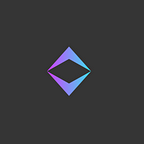Since the foundation of the first DAO back in 2015, these organizations have taken the crypto businesses by storm. Let’s dive into this new way of governance and see what makes it highly effective compared to traditional businesses:
For starters, what is a DAO?
A DAO stands for Decentralized Autonomous Organization. It is composed of a group of people who work for a common goal and abide by certain rules. Unlike a company, a DAO has a flat hierarchy, and isn’t controlled by a CEO or director. Instead, the rules of the DAO are voted on by the community members who hold the DAO’s token, and enforced by smart contracts.
How does a DAO work?
DAO members who hold the DAO’s token can vote on significant decisions in the DAO’s development. Like stakeholders in a company, users get more voting power relative to their tokens. In order to be able to vote in a DAO, you must buy the DAO’s token. For example, Mean Finance’s DAO runs on the $MEAN token.
Every user who buys MEAN tokens and holds them on his Solana wallet can get special roles in the DAO, plus the ability to vote on proposals within the DAO.
DAOs use smart contracts for maintaining order and transparency. Smart contracts are self-executing software that executes a function when certain conditions are met.
For instance, smart contracts are used for increasing or burning a part of the token’s supply, as well as issuing rewards for those who stake their tokens.
Benefits of DAOs:
Using a DAO structure proved to be beneficial for many crypto teams and projects. Here are some features that make DAOs a great choice for builders in the crypto space:
Decentralization:
Like cryptocurrencies that promote a financial system with no intermediaries or central authority, DAOs rely on numerous users that contribute to its development without relying on a director or manager to rule the organization.
Participation:
Users within a DAO share the same community and have common interests. For instance, if every contributor in the DAO does their job in the right way, the DAO’s token will most likely go up in value, making the users somewhat richer.
Publicity:
Thanks to the open-source nature of blockchain, every proposal and every penny spent from the DAO’s treasury can be viewed on the blockchain. This helps build trust among DAO members and discourage them from acting against the community’s interests, because everyone’s actions are trackable.
Community:
Unlike corporate and business organizations where the environment often feels stressful and exhausting, DAOs are usually very chill and welcoming, especially to newcomers.
In general, DAOs work on the basis of contributing, which means anyone can participate in the growth of a DAO whenever they can, and in any way they would like to.
Disadvantages of DAOs:
DAOs come with their own set of imperfections. Here are some DAO limitations:
Speed:
Due to the decentralized nature of DAOs, most of the decisions take a while to be voted on and executed, unlike in a company where a CEO can approve an important decision in a matter of minutes. Sometimes, this leads to proposals piling up and being discussed for days without getting anything done.
Diversification:
DAO members typically have different backgrounds. This makes it harder to communicate between members. In fact, because of their low barrier for entry, DAOs can attract members who don’t know much about how DAOs work, or can’t communicate respectfully. Hence, much time can be wasted on onboarding new members.
Security:
Running an organization on the blockchain makes it exposed to all kinds of hacks if it isn’t well protected. DAOs need to go through many audits to ensure that the code behind the DAO doesn’t contain any vulnerabilities that can be exploited by hackers.
How to contribute in a DAO?
There are many ways in which a person can help grow the DAO. The most common ones include: doing bounties, participating in contests, submitting a proposal, and joining a guild.
In essence, DAO members can participate on bounties and contests offered by the DAO on platforms like Layer3 and Rabbit Hole. Basically, bounties and contests are hosted by the DAOs to encourage crypto enthusiasts to join the DAO and help it grow by doing some tasks, and participants are usually rewarded for their contributions.
Moreover, users can also join guilds, which are groups of people who master a given skill within the DAO. Once a user finds a guild that matches his skill set, he can start contributing and can be rewarded for his contributions through the DAO’s token.
Final thoughts:
DAOs provide an endless realm of possibilities for anyone interested in this technology. Nowadays, any group of friends with access to internet can create their own DAO, in which they can work remotely and provide services and digital products for others. DAOs don’t discriminate thanks to their decentralized nature, meaning a member from Asia is rewarded the same as a member from the US.
Generally, the faster you join a DAO the better. Actually, by being one of the first members in a DAO, you gain more trust, more fancy roles (such as OG), and get to learn more about its ecosystem. So what you are waiting for? Join a DAO and start your journey as a contributor!
Make sure to follow Mean Finance on its social media channels in order to stay up to date with its latest news and developments:
